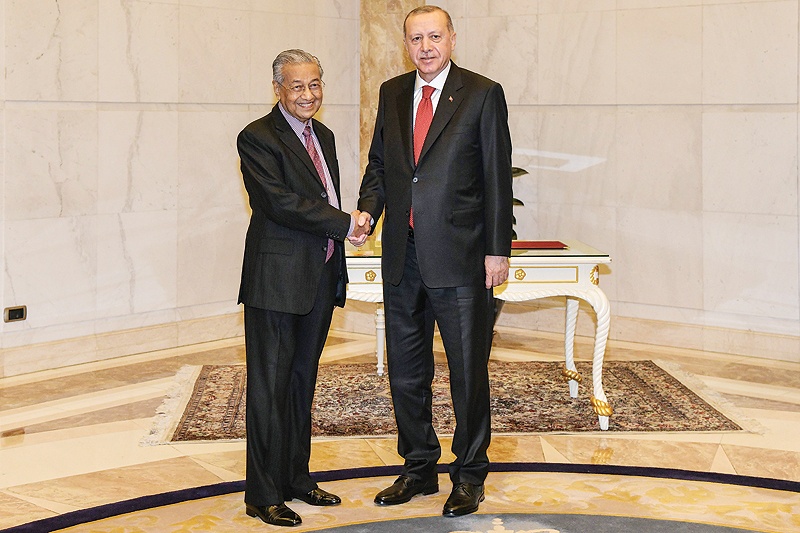
KUALA LUMPUR/RIYADH: Leaders from many Islamic nations including Turkey and Iran gathered in Malaysia yesterday to tackle issues that have agitated Muslims worldwide, but the summit was snubbed by Saudi Arabia and its close ally Pakistan. At a welcome dinner, Malaysian Prime Minister Mahathir Mohamad said the Kuala Lumpur Summit would aim to "do something" to improve the lives of Muslims and overcome Islamophobia.
"We need to find a way to address our shortcomings, our dependency on non-Muslims to protect ourselves against the enemies of Islam," said Mahathir, 94, the world's oldest head of government and one of its most outspoken. The four-day summit could also address mounting outrage over China's camps for Uighur Muslims in Xinjiang - a subject that will doubtless upset Beijing.
Pakistani Prime Minister Imran Khan, who along with Mahathir and Turkish President Tayyip Erdogan had been a prime mover behind the summit, made a belated decision to skip the meeting. Some Pakistani officials, unnamed because they are not authorized to speak to the media, said Khan pulled out under pressure from Saudi Arabia, though local media reported his officials denied that was the reason for the absence of the world's second most populous Muslim country from the meeting.
Iranian President Hassan Rouhani and Qatari Amir Sheikh Tamim bin Hamid Al-Thani, whose countries have tense relations with Saudi Arabia, were at the gathering in Kuala Lumpur. Saudi Arabia said the summit was the wrong forum for matters of importance to the world's 1.75 billion Muslims, though some analysts suspected the kingdom feared being diplomatically isolated by regional rivals Iran, Qatar and Turkey.
Saudi state news agency SPA reported that on a call with Mahathir on Tuesday, Saudi King Salman reaffirmed that such issues should be discussed through the Jeddah-based Organization of Islamic Cooperation (OIC). A Saudi source said the country declined to attend because the meeting was not being held under OIC auspices. The Saudi government's center for international communication did not respond to a request for comment.
'Weakening of Islam'
OIC Secretary-General Yousf Al-Othaimeen told Sky News Arabia that it was against the interests of the Islamic community to convene meetings outside the aegis of the OIC. He also said the Kuala Lumpur summit was splintering Islamic solidarity. "Any weakening of the Organization of Islamic Cooperation is a weakening of Islam and Muslims," he said. The absence of Saudi Arabia, the birthplace of Islam, whose king also hold the title of Custodian of the Two Holy Mosques in Makkah and Madinah, underlined divisions in the Muslim world.
"The issue is that you've got blocs," said James Dorsey, a senior fellow at S Rajaratnam School of International Studies and Middle East Institute in Singapore. "You've got a Saudi-UAE bloc, Turkey-Qatari bloc, and Pakistan in the middle trying to hedge their bets." Indonesia, with the world's largest Muslim population, was represented by Vice-President Ma'ruf Amin, a cleric overseeing the country's fight against radicalization and terrorism.
Defending the summit, Mahathir's office said there was no intention to create a "new bloc as alluded to by some of its critics". "In addition, the summit is not a platform to discuss religion or religious affairs but specifically to address the state of affairs of the Muslim ummah," it said in a statement, using the Arabic term for community.
Speaking to Reuters last week, Mahathir expressed frustration with the OIC's inability to forge a united front and act decisively. The Malaysian leader also raised the possibility that the alleged mistreatment of Muslim Uighurs in China's Xinjiang would be discussed in Kuala Lumpur. Beijing describes the camps where Uighur Muslims are being held as "vocational training centers", while critics say they are mass internment camps. - Reuters










